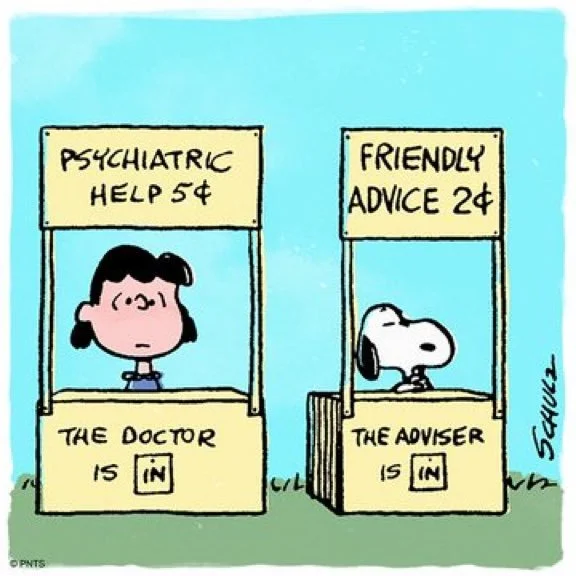Dr. TikTok Is Not In
The article you are about to read is one that I originally wrote in July 2021.
I hope you can forgive me for the familiar content if you have read it before, and if not – I welcome you first time reader.
Reposting my own content is part of a reclamation process I am going through to reclaim my agency, my property, and my power as a proud Queer and Racialized Social Worker, Therapist, and Human Being.
- Lewis
---
Listen.
We’ve all been there, scrolling our favourite social media app and someone’s video or post pops up that we maybe relate a little too much with and suddenly we’ve diagnosed ourselves with some ailment.
The trend I’m noticing is that TikTok and other social media platforms seem to have replaced the old WebMD.
Here’s the thing – there are not many folks out there that are pursuing their MD from the University of Internet.
Let’s all say it together –
“we won’t self-diagnose from social media posts”.
Creators are putting out content about their own symptoms and lived experience with whatever they might be living with often as a means to create community, help with understanding and advocacy, and in hopes of making others feel seen.
The trap we often get into is deciding that those aforementioned symptoms also match our own symptoms, which must mean that we also have the same experience and diagnosis as that creator.
There is a reason that Doctors, Nurse Practitioners, and the like spend so much time in school – they are the ones with the knowledge to look past only a set of symptoms to family history, duration, severity, and anything else that might go into forming an accurate diagnosis.
To look at another angle – while not all ill-intentioned, some trends are unfortunately misleading for click-throughs - I’m looking at you “Put a Finger Down If” challenge.
When it comes to something like a psychiatric diagnosis for example, this trend will have folks listening to the most generalizable set of symptoms to confirm their own diagnosis if they have put enough fingers down.
Here’s the catch – that word “generalizable”.
In this context, generalizable sets of symptoms mean the things that we listen to in this video trend (or ones like it) could typically apply to a very wide array of conditions, diagnoses, quirks, tendencies, and traits instead of the one thing portrayed in the trend.
Let’s all say it together again –
“we won’t self-diagnose from social media posts”.
Now, all this is not to say that if you see something on social media that you relate to and have a legitimate concern that you are wrong. If you have a concern, that is absolutely valid! If this is the case it is so important to follow the proper channels for care in order to make sure that you are accessing the proper supports for your health. This could likely involve an appointment with your Family Doctor or Nurse Practitioner.
I am absolutely guilty of the internet self-diagnosis trap, and I hear it come up a lot in my practice with clients. When it comes to mental and physical health, while Social Workers and Psychotherapists in Ontario cannot diagnose, we will refer you back to your Family Doctor/Psychiatrist/Psychologist or Nurse Practitioner for follow up on any such concerns.
For all of the harms that I’m sure many could prattle off that might exist with social media, I’m not going to pretend that
1) we don’t all use it and 2) that there aren’t actually benefits to it.
In order to enjoy all of the benefits, community building, and awareness raising that can come along with social media, we also have to be able to use a lens of critical thought and analyses and understand that the versions of most people we see on platforms are highly polished and curated.
Social media platforms have allowed many people, creators, etc to create so many wonderful and empowering communities that can and do span the entire world in ways that we did not have the capacity for before these platforms existed.
Even if you can’t find someone in popular media who looks, thinks, or acts like you the chances that you could find such a person – or such a group of people – via social media are fairly high.
When we get to look past the self-diagnoses, the sensationalized click bait, and the generalized trends or challenges, there is so much to learn and experience, and so much fun and exciting content to consume. It is nonetheless important to understand why things start trending, why you might relate to so much of what someone says, and maybe just take some things learned with a grain of salt.
I fully recognize the irony of this information coming in form of a blog post that you likely got to through social media. Trust me, I’m not about to delete my social media accounts either.
Let’s all just say it together one last time –
“we won’t self-diagnose from social media posts”.

